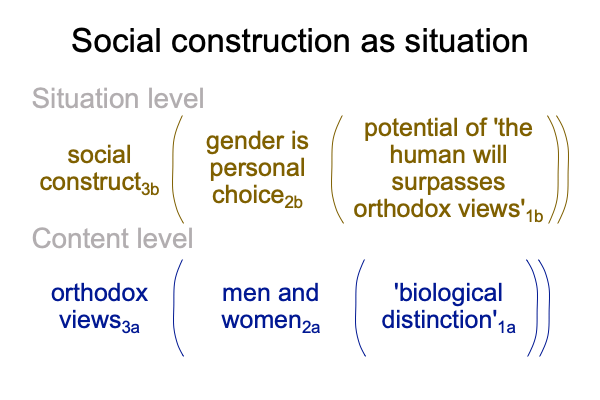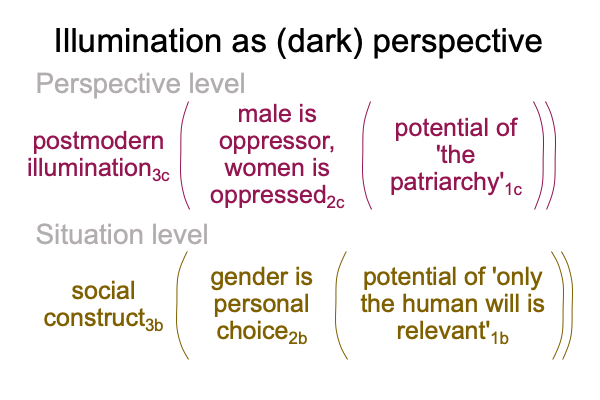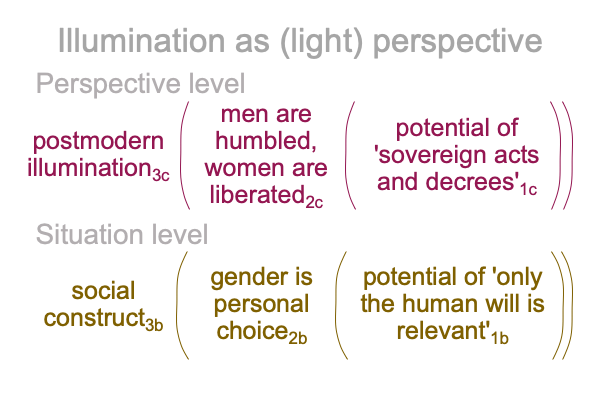0014 So far, in looking at chapter four of Saad’s book and using gender as the example, I re-articulate some of the author’s claims using the category-based nested form.
Postmodern illiberal movements situate orthodox views about men and women2a with the concept that gender is a personal choice2b.

0015 Plus, postmodern illiberal movements3b exclude both traditional formulations3b and the disciplinary language of cognitive psychology3b.
On what theoretical grounds do they exclude?
0016 Well, if they have no theoretical grounds, then they would be intellectual terrorists.
But, if they do, then what would put the normal context of social construction3b into perspective3c?
Well, the perspective must be a postmodern illumination3c, because the situation-level normal context3b displaces both science and reason. The situation tells me that gender is a personal choice2b. An third-level actuality2c must put that personal choice2b into perspective. If the world2c is “naively innocent”, then that perspective empowers the situation-level actuality2b. If the world2c is “treacherously corrupt”, then that perspective explains why the situation-level actuality2b may never be realized (without the assistance of a benevolent being with sovereign power).
0017 Here is a picture of the dark side of the postmodern illumination3c.

0018 The slogan of “toxic masculinity”2c enters the picture as emerging from (and situating) the potential that contextualizes the situation level1c. Men are oppressors. Women are oppessed. And, that is all there is to it. The actuality2c emanating from the potential of ‘the patriarchy’1c is an illumination of darkness3c, in the Manichaean sense of the term, “darkness”.
Of course, this perspective is counter-intutitive in the sense that is incomplete. The problem? The other half of the illumination goes unspoken. An illumination3c of light, as opposed to darkness, remains unspoken.
0019 Here is a picture of the naively innocent side of the postmodern illumination3c.

0020 Naive and innocent sovereign acts and decrees have the potential1c of mitigating the dominating and inflexible patriarchy1c. Of course, this requires sovereign power1c.
0021 What happens when ‘sovereign acts and decrees’1c counters ‘the patriarchy’1c?
Men are humbled2c and women are liberated2c in the normal context of the light-filled normal context of postmodern illumination3c.
